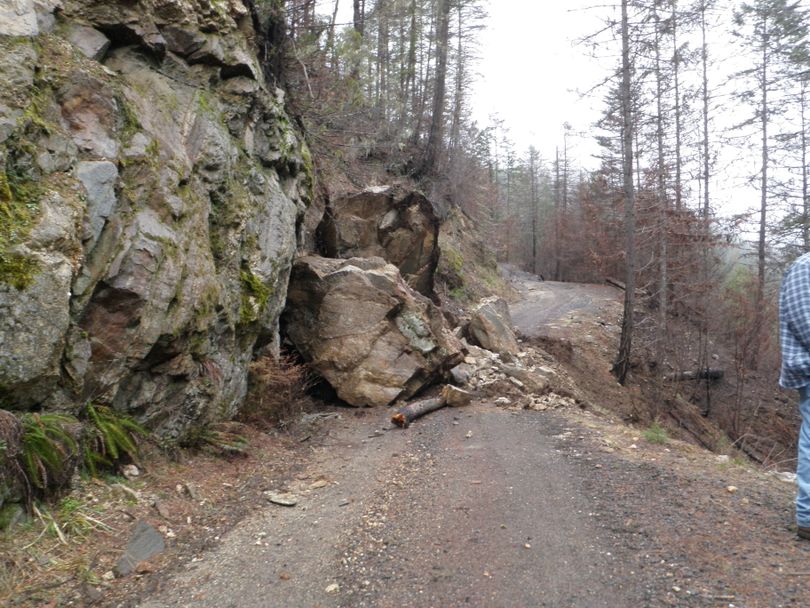Rangers warn of landslides, post-wildfire hazards on forest roads

PUBLIC LANDS -- A few warm and sunny days, pent up interest in fishing, shed hunting and scouting for turkey season have brought many visitors to the lower elevations front-country of the region's national forests.
But it's the season to be especially wary of road and trail conditions, especially this year.
Forest roads are prone to a variety of hazards accentuated by last year’s wildfires and recent wetting rains.
Rolling rocks and debris are common in fire areas where foliage is no longer present to hinder their descent, according to officials from the Nez Perce-Clearwater National Forests.
"When you enter a burned area, treat it as if you have never been there," they say after surveying the borders of the Teepee Complex Fires. "Conditions change minute to minute in recently burned areas, especially in the springtime. Consider alternative routes and their current availability. If the location you are recreating in doesn’t have a second route be prepared with the appropriate gear," they add, noting that rockfall could suddenly block a road and leave visitors stranded.
Let people know your exact itinerary and which roads you'll be using, otherwise, with no cell phone service, you could find yourself stranded with no one likely to come to your aid.
Other hazards to consider:
- Thunderstorms, long duration storms, and rain-on-snow events can produce debris flows which may occur throughout the burned areas and downstream of these areas. These debris flows are dangerous for anyone caught in their path.
- Snags and woody debris can clog culverts and bridges which may wash out those structures.
- Floating and submerged logs may pose extreme hazards to boaters, rafters, and waders.
- Trees may fall at any time, but are especially susceptible to failure during high wind and/or heavy rain or snow.
